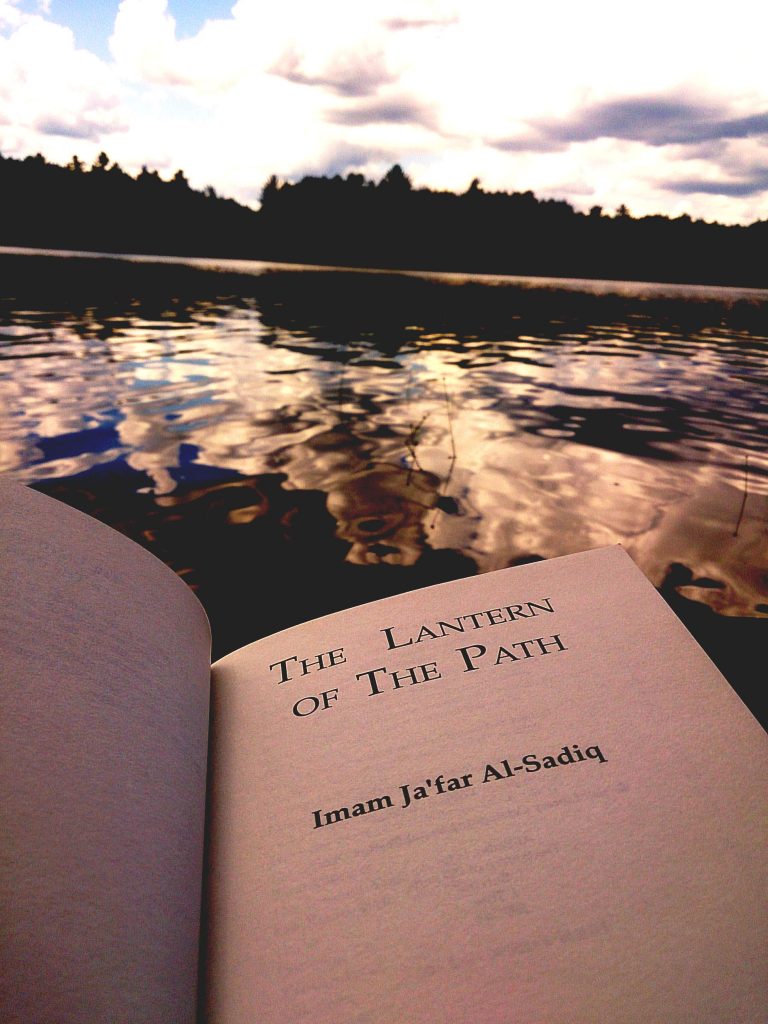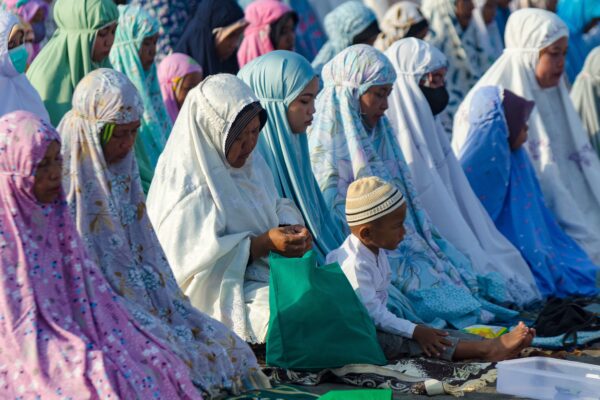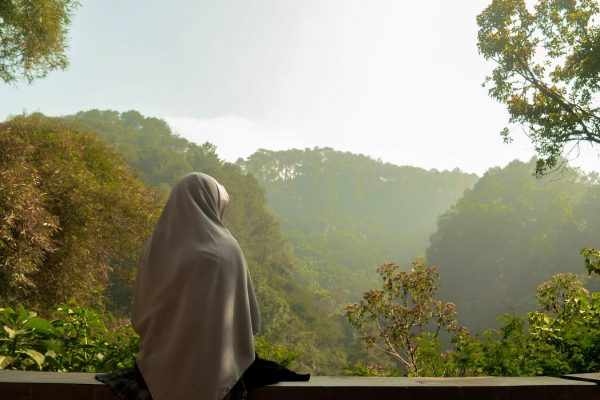Sitting on a damp crescent of sand next to a lake at the outskirt of the forest surrounding the Mount Tremblant, I found myself contemplating the setting sun while blinking at the rhythm of wave’s caressing the wooden trunk peacefully resting on the shore.
The farewell of the sun to the earth I was experiencing was a beautiful sight and I could not resist taking out my phone in order to immortalize this scenery. Right after I tried taking the best possible shot I could with my smartphone in order to share it with my friends, I realized the sun had almost entirely set and I had missed a significant part of its setting. I turned off my phone and sat there smiling at myself when realizing the bitter truth of the tendencies of the society I had started to reflect through my behavior.

In a society where we are used to sharing every thought and moment of our lives, where we are expected to react on social media almost instantly after anything happens in the world, these moments spent in solitude are a good reminder of the very nature of our creation: the fact that one’s existence on earth does not depend on others and that ultimately the purpose of our creation is to know the Almighty and to experience his light, a purpose that is a personal one, and one that will always prevail over ties that bind us to our social identity for it will exist even if we were the only remaining souls living on earth.
Often when I would find myself in a secluded place in the middle of nature, I would think of a life spent in solitude in a wooden house “à la Henry Thoreau”, a life in which simplicity would prevail over any other state and for some reason, the thought of such a life always brought about a sense of spirituality in me which in turn made me question the link between simplicity, solitude and spirituality.
The idea that solitude ultimately leads towards a simpler life is perhaps tied to materialism. Often, philosophers that have written about solitude and seclusion such as Thoreau or Emerson, have almost immediately experienced a newly acquired taste of simplicity through the negation of the never-ending pursuit of a material life, the only pursuit through which many of us identify ourselves and remain alive.
Spirituality, solitude and simplicity
In other words, it seemed as though seeking simplicity was a reaction to an overstimulation of the senses expressed through materialism in societies whose foundations were built upon consumption and the fulfillment of human desires. The negation of such a life pushes one to search for another balance, one in which spiritual needs are placed above physical ones. Therefore, the link between spirituality, solitude, and simplicity is one that is tied to our own nature. The quest for spirituality leads one to negate materialism, which brings about simplicity and in turn, seeking simplicity often leads one to live away from centers of materialistic societies, in relative solitude.
Another explanation for the spiritual high one experiences when alone in nature, is perhaps tied to the realization of oneself in the scale of the universe. When you end up staring at oceans and mountains, or experiencing the depth of a forest, you often understand better how insignificant your physical reality is in the entire scheme of God’s creation. At this point, your ego flattens and you end up experiencing a shift in your perception of your own reality. It is when you stare at the countless stars that witness your existence from above that you end up identifying yourself with the infinity of your soul more than through the nothingness of your physical being.
This shift in the perception of who we are is a critical one in one’s quest for meaning for it is through this shift that one gains a greater sense of responsibility. It is only when we identify ourselves through our spiritual existence that we can pretend to understand better, words of the great Arif that Imam Ali (pbuh) was, when he mentions that
‘Human beings should not see themselves as insignificant beings, for within them, is buried an entire universe’.
When I wrote these thoughts down on a paper in order to make some sense from all of which I had experienced in that little time away from home, I reached out to my copy of Walden and started re-reading Thoreau’s essays on solitude. I found it fascinating that I could connect with some of his words after only half a day spent in nature, a realization that made me think about the universal truth that unites every human being that has ever set foot on earth in the true nature of their creation. This universality in creation not only meant that we shared a common purpose, it also meant that there had to be common realities which regulated every living being’s spiritual quests no matter how different each and every wayfarer lost in the path of God could be. And if this universality was indeed a fundamental truth, one could expect these principles found in western philosophy to be expressed, validated or completed by other schools of thought, especially one as rich and exhaustive as Islamic philosophy.
The idea that solitude impacts one’s spirituality is not a thought that is uncommon within Islamic tradition. On the contrary, it is actually a subject that features in almost every treatise of spiritual wayfaring. Amongst the greatest mystics and modern philosophers that Islam has been blessed to have under its banner and who have written about this topic, Allameh Tabatabaei often stands out as the perfect example of a man who had understood and manifested principles of the Quran in his personality and life.
Spiritual Wayfarers
In his book Kernel of the Kernel, Allameh beautifully explains how his journey towards light passed through several stages and how relative seclusion (khalwat) was an integral part of his spiritual ascension. Allameh identifies spiritual wayfarers to be unlike ‘the group of people [who] have no will power of their own, [a group which is] totally submissive to the will of society and follows [it]. On the contrary, according to Allameh, wayfarers seeking spirituality have a tendency to distance themselves from certain people, they busy themselves in ‘dhikr’ and often avoid crowds, attention and noisy places.
There are indeed similarities in both western and Islamic schools of thought when it comes to the role solitude plays in spirituality. But are the two really equal? Can one live a life like Thoreau; a spiritual life spent in the woods, in solitude and silence and still follow Islam in its entirety?
While I got more and more interested in those topics, and tried to grasp and absorb essays on solitude from western and Islamic philosophers I realized how their writing were starting to profoundly impact my personality. I had always been a lively person, the kind of person that would crack a joke in order to make other feel comfortable and lighten up a conversation. But the more I read Thoreau and others, the more I became quiet. The more I spent time in nature, the more I appreciated silence. Interestingly, others often perceived this newly acquired sense of tranquility, which expressed itself through silence, as a state of worry, stress or anxiety. It always brought a smile on my face when people thought I was lost exactly when I started to find where my existence laid in God’s entire scheme of creation.

While keeping these thoughts in my mind, and forever seeking the balance required between solitude and society, between simplicity and materialism, this spiritual journey brought me to Qum in Iran where I spent few weeks amongst scholars from the hawza (seminary) and students from the west. I remember having travelled from Qum to Mashhad in a night train accompanied by Agha Amini, a teacher of Akhlaq that Ayatollah Tahriri, himself a student of Allameh had advised to consult for spiritual growth.
In the middle of the night, I asked my question to Agha Amini and tried to understand where the middle ground laid. On the one hand, it is often narrated that Allameh Tabatabaei had reached a certain level of spirituality after successfully detaching himself from materialism while distancing himself from elements of society which were detrimental to his spiritual growth. Other mystics such as Ayatollah Mutahari had also emphasized on the detrimental impact of a materialistically driven society on one’s spirituality. But on the other hand, there were also countless advantages and benefits that could solely be acquired in the presence of other individuals, be it learning from scholars, helping others, teaching and the refinement of one’s morality all of which one could not benefit from if one was to live a life in the woods like Thoreau. And because Islam emphasized so much on social and family ties and responsibilities, one could easily find himself lost, eternally looking for the right balance required to grow spiritually without neglecting its Islamic duties.
A much simpler formula
Agha Amini listened and understood the matter. He gave me an advice, which I engraved in my mind ever since. He acknowledged the fact that temporary seclusion and solitude were indeed practices that were common amongst mystics and that they did bear a spiritual significance. However, despite the relevance of these practices, Agha Amini stressed on another aspect of Akhlaq that was by far the most critical to one’s spiritual growth and that followed a much simpler formula: perform your wajibat (obligatory acts) and avoid your muharammat (forbidden acts). From this perspective, one can only distance himself from certain social elements only as long as it does not lead one to infringe on his/her social duties.
This sentence made a lot of sense to me and I find it interesting that this advice was actually the first one that Ayatollah Ibrahim Amini, may Allah give him a high rank in Jannah, mentioned in his book on self building and spiritual growth when he wrote that ‘monasticism, renunciation of worldly affairs, and unacceptance of social responsibilities are not pre requisite for undertaking a self-purification program, on the contrary, as will be shown in the book later on that seclusion and relinquishment of individual and social responsibilities are inconsistence with the spiritual self-building and self-purification program.’
Allameh Tabatabaei himself draws a sharp contrast between true seekers of spirituality and people who have made solitude, seclusion and the negation of all social customs, norms and responsibilities to be the principles around which their lives are built. Allameh mentions in his book that the true spiritual seeker must always observe moderation and adopt a middle position.
When I think about this quest for meaning and spirituality, this journey seeking the middle ground and how it had impacted my perception of life, I realized how these writings had made me rely on my sole company more than I ever had before. And since I had learnt how to appreciate life through my own existence, I was now able to find a greater sense of satisfaction from my life experiences, for they did not rely on anyone else’s approval or acceptance.
Social media
Pragmatically, this realization made me distance myself from social media. I am not against the use of Facebook or Twitter and I do realize that there are countless advantages of being able to connect and share content with likeminded people within seconds no matter where they live. As a matter of fact, I am not even sure you would be reading this essay if it wasn’t shared on social media.
There are several reasons why one distances himself from these platform, especially while seeking greater realms of self awareness. The first one is a very simple one. When one learns how to appreciate moments of his life for the truth they inherently bear instead of how great they would look once immortalized, one does not feel the need to experience them through the appreciation of others.
The second reason is perhaps a more subtle, and is the fruit of a deeper realization, one that makes one question the miserable value we tend to assign to our thoughts and reasoning.
When one ponders over the matter a little more, one soon realizes that most of us have a tendency to judge the validity of our thoughts and experiences through the popularity they generate on social media. The more likes a post gets, the more one feels he has written something worthy of being read. This reliance on others not only feeds one’s ego, it also makes one to exist solely through foreign eyes. This behaviour not only forces our existence to express itself through likes and comments, it pushes our souls to surrender their most valuable God-given right, the right to be free and to exist through our sole dependence on Allah’s mercy and justice. And to be fair with all other injustices committed by past and previous societies, I found this caging of our identity to be the greatest form of enslavement of modern times for I don’t think we have ever knowingly, consciously and wilfully belittled our existences any lower.
The greatest challenge
The greatest challenge in this quest of spirituality is to find a balance between the sweetness of solitude, and the tenderness of friends and family, the balance between the soothing tranquility of silence and the thrill of exchanging with likeminded people. With time I have realized how far greater Islamic mysticism and philosophy are to ideas of Thoreau, no matter how brilliant they are, for Islamic mysticism allows one to attain its true potential without hindering the spiritual growth of others. It allows the likes of Allameh Tabatabaei to enlighten societies they live in, to share their knowledge and train future generations of thinkers, all of which are responsibilities without which they themselves couldn’t have attained the level of understanding and wisdom they have attained. Islamic mysticism lets you enter greater realms of spirituality using a balance that suits the entirety of one’s reality, which is not only a spiritual one, but a social and physical one also. And it is at the junction of these three realities that one can truly fulfill the purpose of its own creation.
One wonders how to call this balance. This place where one is just alone enough to be free yet, present enough to serve others. I guess I’ll just call it the way I picture it in my mind: a place stuck between Muir’s mountain and Thoreau’s house in the woods; a place that offers a tiny bit of flexibility in order to experience silence the way Allamah did. Often, when I think about this place, I think of Frost and the road diverging in a yellow wood. While he chose to take the one less travelled by, I chose to create my own. Somewhere between a path leading to total seclusion and one leading to a complete immersion in society, I decided to walk on my own unpathed trail. And when I stopped after a while in order to observe where I stood in comparison with the two other paths, I found myself exactly where I had intended to be, in the space that lied in between them.
Works Cited
- Allameh Tabatabaei, Kernel of the Kernel
- Ayatollah Amini, Self Building
- Henry David Thoreau, Walden
- John Muir, Mountains of California
- Ayatollah Misbah Yazdi, Provisions of the Journey
- Robert Frost, The road not taken





